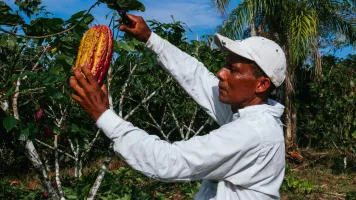Agriculture is an engine of growth for households and for countries alike, as a source of employment and a key driver for food security. But the flipside to its capacity to feed people, bolster the economy, and protect the planet are the many challenges that arise when the industry is not carefully and sustainably managed – farming and livestock cultivation affect land degradation, water use or misuse, pollution from pesticides, greenhouse gas emissions, and climate change. Climate change patterns, as well economic and market forces, can hinder food production, quality, and sales, exacerbating hunger, malnutrition, and poverty for many vulnerable communities.
Accurate data are needed to provide the guidance to navigate these complex, and deeply interrelated factors. But data on agriculture in many countries is at best outdated, at worst non-existent. This case study shines a light on where data is being used effectively in the agriculture sector to support governments to provide better services to their people. It explores data use in Kenya – using survey and satellite data to protect pastoralists from the shocks of drought, and in Tanzania – using survey data to gather additional data and to test more efficient policies that are achievable at low costs.
Read Agriculture Data Shaping Policy and Changing Lives in Kenya & Tanzania (PDF, 2MB).

